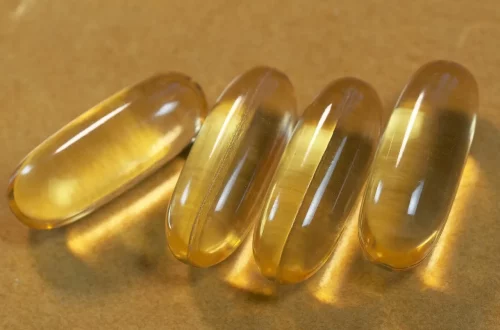
Can I Feed a Betta Fish Goldfish Food Safely and Effectively?
Feeding your pet fish often involves careful consideration of their dietary needs and preferences. Betta fish, known for their vibrant colors and unique personalities, require a specific diet to thrive. While it might be tempting to share various types of fish food, including goldfish food, with your Betta, it’s essential to understand the nutritional requirements of these two species. Goldfish and Bettas have different diets and feeding habits, which can lead to complications if the wrong food is given.
Betta fish are carnivorous by nature, thriving on a diet rich in proteins, while goldfish are omnivores, consuming a varied diet that includes plant matter. This fundamental difference is key to understanding whether goldfish food can be safely and effectively introduced into a Betta’s diet. Proper nutrition not only affects the health and longevity of your fish but also their behavior and overall well-being. Therefore, it’s crucial to make informed decisions when it comes to feeding practices. Misunderstanding the dietary needs of these fish can lead to health issues, such as obesity or malnutrition, which can adversely affect their quality of life.
With this context in mind, let’s explore the implications of feeding Betta fish goldfish food, ensuring we cover the essential aspects of their dietary needs and the potential risks involved.
Understanding Betta Fish Dietary Needs
Betta fish, native to Southeast Asia, are known for their specific dietary requirements. Primarily carnivorous, they thrive on a diet rich in protein. In their natural habitat, Bettas consume insects, larvae, and other small aquatic creatures. This protein-rich diet is essential for their growth, development, and overall health. Therefore, when selecting food for your Betta, it is crucial to focus on high-quality pellets or flakes specifically formulated for Bettas.
The typical Betta diet should consist of around 40% to 50% protein. This high protein content supports muscle development, vibrant coloration, and the immune system. Additionally, Betta fish require certain fats and carbohydrates to maintain their energy levels. However, the focus should always be on protein sources. Bettas also need vitamins and minerals, which can be found in specially formulated fish foods.
Feeding Bettas goldfish food can lead to nutritional deficiencies. Goldfish food is generally designed to cater to the dietary needs of goldfish, which have different nutritional requirements. Goldfish are omnivores and thrive on a diet that includes both plant and animal matter. Their food is often lower in protein compared to Betta food, which can lead to health issues if Bettas are primarily fed goldfish food.
In addition to nutritional composition, the size and texture of the food matter. Betta fish have small mouths and may struggle to consume larger goldfish pellets. This can lead to stress and difficulty in feeding, resulting in an overall negative eating experience.
In summary, understanding the dietary needs of Betta fish is essential for their health and well-being. A diet rich in protein, supplemented with the right vitamins and minerals, is paramount. Therefore, while it might be tempting to use goldfish food, it is not an ideal choice for your Betta fish.
Potential Risks of Feeding Goldfish Food to Bettas
Feeding goldfish food to Betta fish poses several risks that can adversely affect their health. One of the primary concerns is the nutritional imbalance that can arise from such feeding practices. Goldfish food typically contains lower protein levels and higher levels of carbohydrates, which do not align with the Betta’s natural dietary requirements. A diet deficient in protein can lead to stunted growth, weakened immune systems, and diminished coloration in Bettas.
Another significant risk associated with feeding goldfish food to Betta fish is the potential for digestive issues. Bettas are not equipped to process the high fiber content often found in goldfish food. Over time, this can lead to constipation and bloating, conditions that can be uncomfortable and potentially life-threatening for your fish. Symptoms of these issues may include lethargy, a swollen abdomen, and difficulty swimming.
Additionally, goldfish food is often formulated with different ingredients that may not be suitable for Bettas. Some goldfish foods contain fillers and artificial additives that can negatively impact a Betta’s health. These ingredients can lead to poor digestion and may even cause allergic reactions in sensitive fish.
Moreover, goldfish food often sinks quickly, which means that Bettas may not have the opportunity to consume it before it becomes contaminated by waste or uneaten food. This can lead to water quality issues in the aquarium, which can further stress the fish and lead to disease outbreaks.
In conclusion, while it may seem convenient to feed goldfish food to Bettas, the potential risks far outweigh any perceived benefits. A diet tailored specifically to their nutritional needs is essential for maintaining the health and vitality of your Betta fish.
Alternative Food Options for Betta Fish
When it comes to feeding Betta fish, there are numerous alternatives to goldfish food that cater specifically to their dietary needs. Choosing the right food can significantly enhance your Betta’s health, coloration, and overall well-being.
High-quality Betta pellets are a popular choice among fish keepers. These pellets are designed to provide the optimal balance of protein, fats, and essential nutrients. When selecting pellets, look for those that list whole fish or shrimp as the primary ingredient, as these will provide the necessary protein levels that Bettas require.
Frozen or live foods are excellent options for diversifying your Betta’s diet. Foods such as brine shrimp, daphnia, and bloodworms are highly nutritious and will satisfy a Betta’s carnivorous appetite. These foods can stimulate natural hunting behaviors and are often more enticing to Bettas than dry food.
Additionally, freeze-dried foods can be a convenient alternative. They retain most of their nutritional value and can be stored easily. However, it is essential to soak freeze-dried foods in water before feeding, as they can expand in a fish’s stomach and cause digestive issues.
It is also beneficial to incorporate some plant matter into a Betta’s diet. While they are primarily carnivorous, small amounts of plant-based foods can provide essential vitamins and minerals. Options like spirulina flakes or finely chopped vegetables can be offered occasionally to ensure a well-rounded diet.
Lastly, consider the feeding frequency. Bettas should be fed small amounts two to three times a day, ensuring that they consume everything within a few minutes. Overfeeding can lead to obesity and poor water quality, so moderation is key.
In summary, there are numerous alternative food options available that are specifically formulated for Betta fish. High-quality pellets, live or frozen foods, and occasional plant matter can create a balanced and nutritious diet that supports their health and vitality.
Best Practices for Feeding Betta Fish
Implementing best practices for feeding Betta fish is crucial for ensuring their health and longevity. Understanding how to properly feed your fish can make a significant difference in their overall well-being.
First and foremost, always choose food specifically designed for Bettas. High-quality Betta pellets or flakes should be your primary choice, as these products cater to their unique dietary needs. Avoid feeding them any food intended for other species, such as goldfish or tropical fish, as this can lead to nutritional deficiencies and health issues.
Feeding frequency is another essential aspect to consider. Bettas should be fed small amounts two to three times a day. This practice mimics their natural feeding habits in the wild and helps prevent overeating. It’s important to offer only what they can consume within a few minutes to maintain water quality and prevent waste buildup.
When introducing new foods, do so gradually. Bettas can be picky eaters, and sudden changes in diet may cause stress or refusal to eat. Start by mixing a small amount of the new food with their regular diet and gradually increase the proportion over time.
Monitor your Betta’s behavior and health closely. If you notice any signs of distress, such as lethargy or changes in appetite, it may be an indication that their diet needs adjustment. Always be prepared to consult with a veterinarian or an aquatic specialist if you have concerns about your Betta’s health.
Lastly, ensure that your fish’s environment is clean and stable. Poor water quality can lead to stress and health issues, regardless of how well you feed them. Regular water changes, appropriate tank size, and suitable filtration are essential components of maintaining a healthy aquarium.
In conclusion, following best practices for feeding Betta fish is vital for their health. By selecting appropriate foods, adhering to feeding schedules, and monitoring their condition, you can ensure that your Betta thrives in a healthy aquarium environment.
—
Please note that this article is for informational purposes only and should not be considered medical advice. For any health-related concerns regarding your Betta fish or other pets, please consult a qualified veterinarian.




